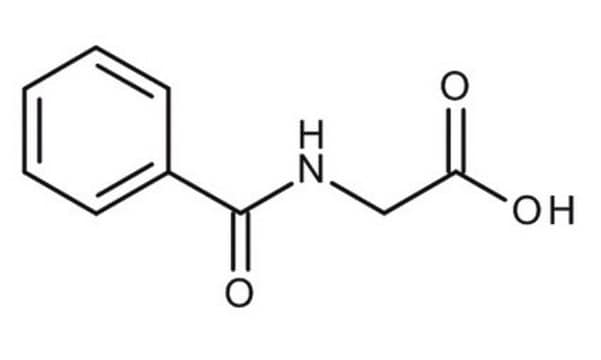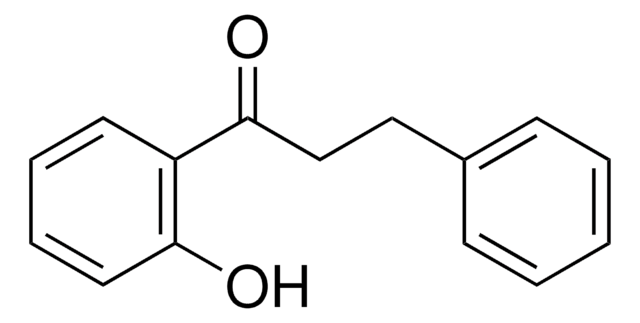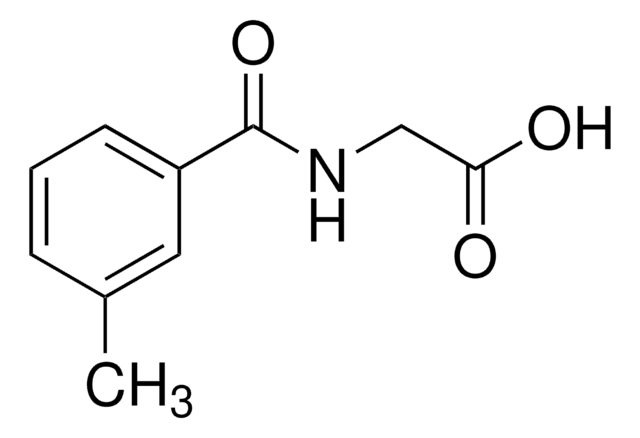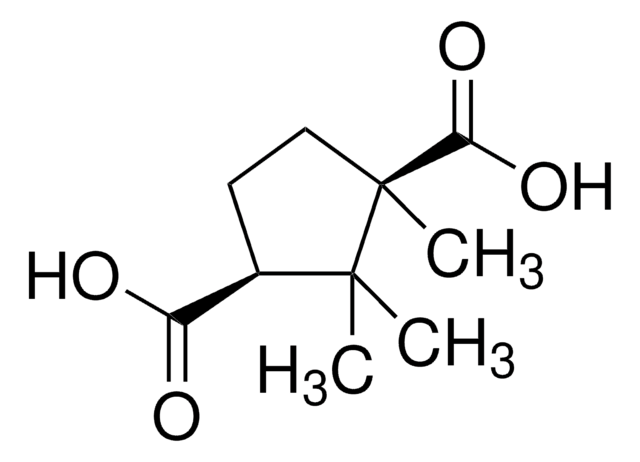112003
Hippuric acid
98%
Sinónimos:
N-Benzoylglycine, Benzoylaminoacetic acid
About This Item
Productos recomendados
product name
Hippuric acid, 98%
Quality Level
assay
98%
form
powder, crystals or chunks
mp
187-191 °C (lit.)
application(s)
peptide synthesis
SMILES string
OC(=O)CNC(=O)c1ccccc1
InChI
1S/C9H9NO3/c11-8(12)6-10-9(13)7-4-2-1-3-5-7/h1-5H,6H2,(H,10,13)(H,11,12)
InChI key
QIAFMBKCNZACKA-UHFFFAOYSA-N
Gene Information
rat ... Akr1b1(24192)
¿Está buscando productos similares? Visita Guía de comparación de productos
Categorías relacionadas
Application
Storage Class
11 - Combustible Solids
wgk_germany
WGK 3
flash_point_f
Not applicable
flash_point_c
Not applicable
ppe
dust mask type N95 (US), Eyeshields, Gloves
Certificados de análisis (COA)
Busque Certificados de análisis (COA) introduciendo el número de lote del producto. Los números de lote se encuentran en la etiqueta del producto después de las palabras «Lot» o «Batch»
¿Ya tiene este producto?
Encuentre la documentación para los productos que ha comprado recientemente en la Biblioteca de documentos.
Los clientes también vieron
Nuestro equipo de científicos tiene experiencia en todas las áreas de investigación: Ciencias de la vida, Ciencia de los materiales, Síntesis química, Cromatografía, Analítica y muchas otras.
Póngase en contacto con el Servicio técnico












